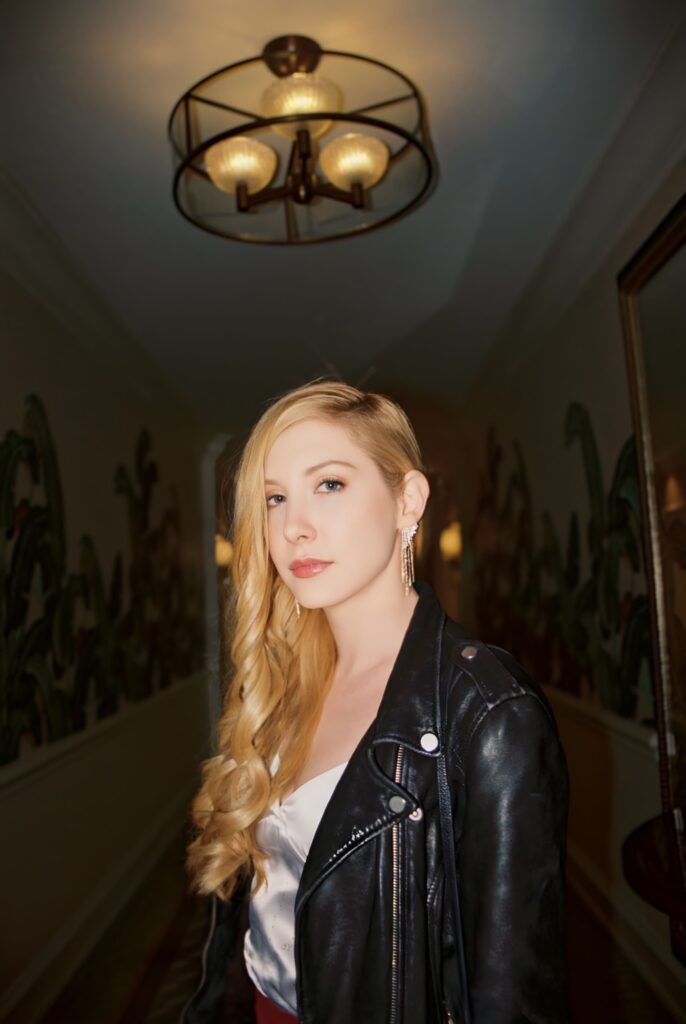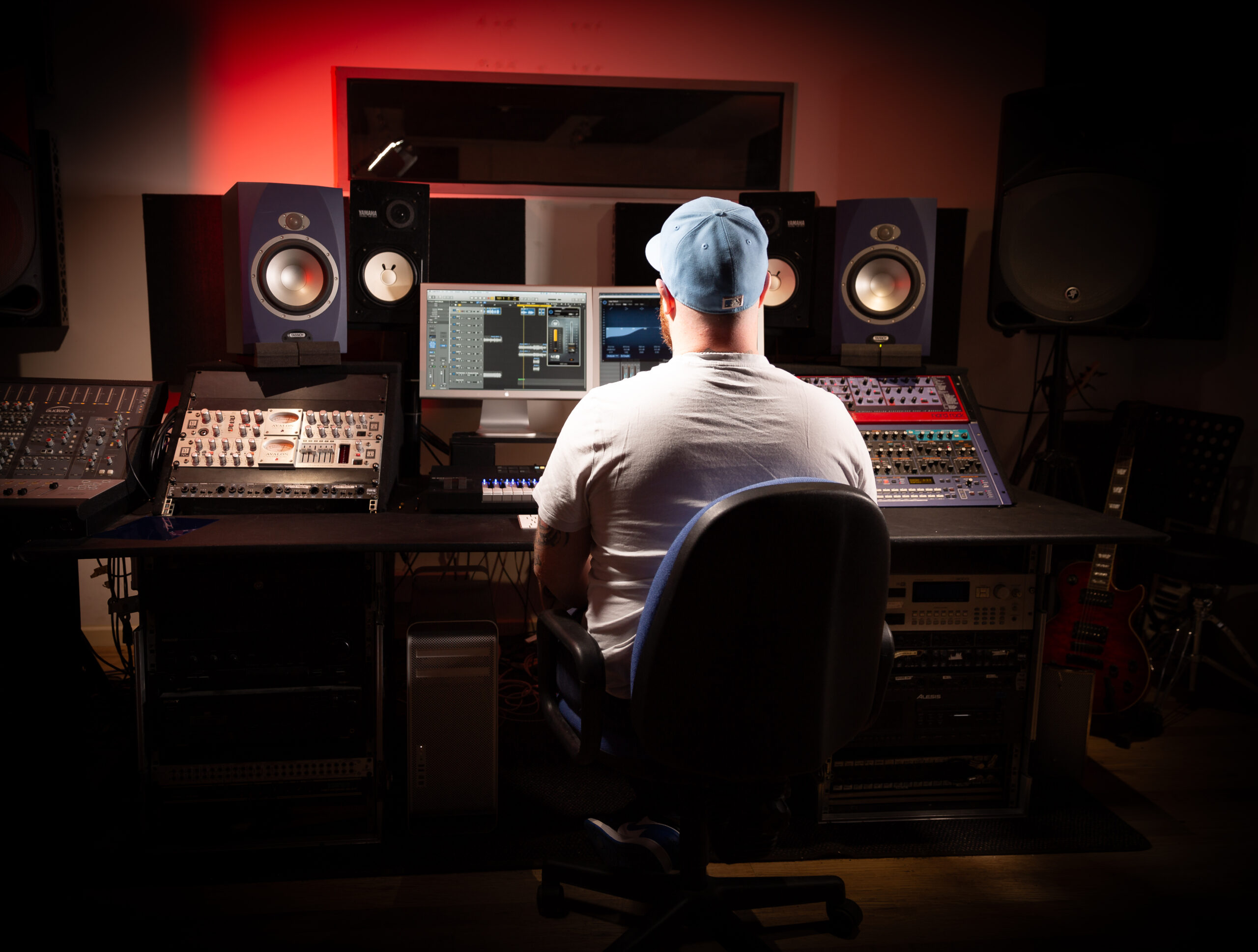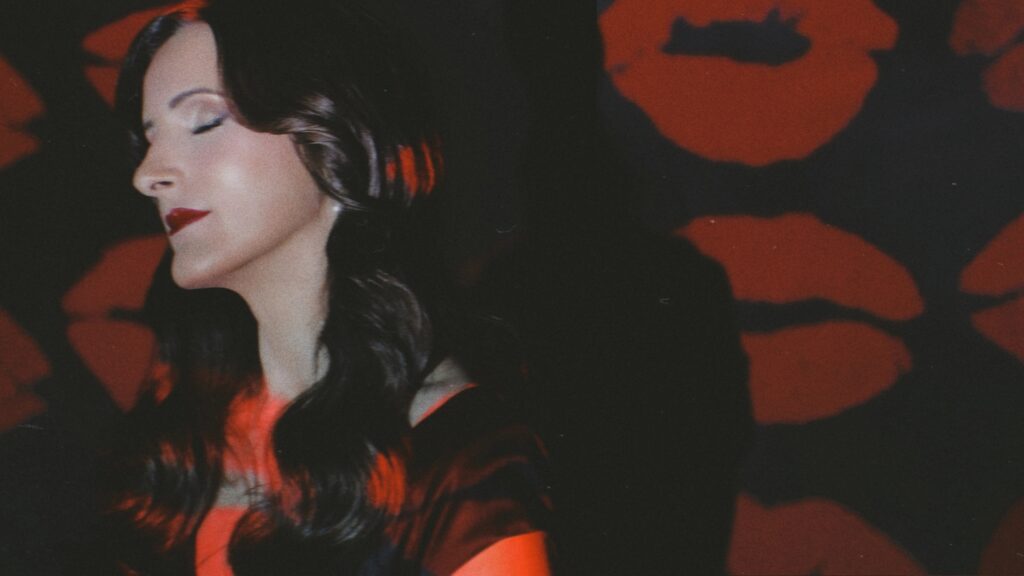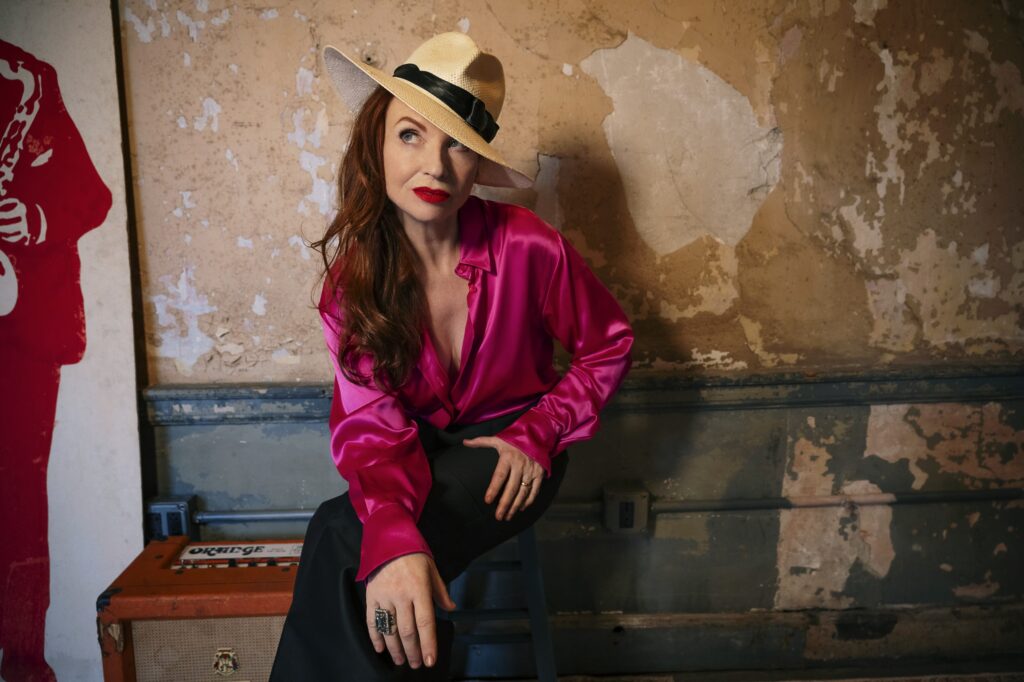When Carly Shea began writing “Take It Personal,” she wasn’t chasing a chart position or another Grammy ballot. She was just sitting in her apartment in New York, trying to write again after months of creative silence. “It had been several months since I’d written a track,” she recalls. “I felt like I had to push myself to sit down and make an attempt.” The moment was small, quiet, and unglamorous—but it became the seed of a song that would mark a turning point in her artistry.
“Take It Personal” is a study in emotional restraint. It’s an alternative R&B and pop hybrid that drifts between tenderness and detachment, its lyrics turning heartbreak into clarity. “Many of my songs are about a particular heartbreak I went through and how it left me with unanswered questions,” she says. “But this year I was able to meet up with that person after a long time and it allowed me to reframe the hurt I felt into acceptance.” The track became a kind of release, an exhale after years of emotional tension. “It’s me looking back on that time and realizing that life moves and you have to move with it.”
Shea’s music has always existed in that liminal space between healing and memory. Her songs don’t wallow; they observe. Her voice, smooth yet textured, feels like it’s in conversation with the beat rather than riding above it. That tension—between vulnerability and control, cinematic sweep and bedroom intimacy—is part of what makes her sound so magnetic. “I’m very lucky to work with a producer named Jedidiah Allcock who really understands the cinematic yet intimate feeling I want to create,” she explains. “I usually have a topline in mind and I know the melodic backbone, but Jedidiah has such a gift for building a world of sound around it.”
That world comes alive vividly in the video for “Take It Personal,” shot by Matthew Canals in Queens, New York. The video begins as a slice-of-life vignette: a glass of wine, muted tones, the subtle act of remembering. As it unfolds, it moves through the city’s streets until everything begins to blur, both visually and emotionally. The ending distorts, echoing the song’s pitched-down outro, creating a disorienting sense of release. “I really wanted to emphasize the distortion of the song with a disorienting visual,” Shea says. “It’s about the dissolution of my connection with the person the song was inspired by.”
For Shea, visuals are not an afterthought—they’re another instrument in her creative process. “With audio, a listener is able to envision a song in the context of their own experiences,” she says. “But with a visual, the artist gets to shed a little more light on how they themselves interpret the track.” That tension between interpretation and control, between the personal and the performative, runs through her entire body of work. It’s what makes her videos feel like glimpses into a dream rather than illustrations of lyrics.
Shea’s path hasn’t been one of overnight success. A bicoastal musician with roots in New York, she’s carved her way through the noise with patience and craft. Her previous release, “Feel Like This,” earned a spot on the official Grammy ballot for Best Pop Solo Performance and drew praise from outlets like Wonderland and Earmilk for “creating new universes” through “vivid songwriting and earworm melodic arrangements.” For many artists, that kind of validation might bring pressure; for Shea, it brought introspection. “At first it did,” she admits. “I felt that I had to achieve the same level of accomplishment with ‘Take It Personal.’ It was exciting and then a bit nerve-wracking because I felt it could’ve been a one-off. But once I stepped away from that and went back to focusing on writing as a creative outlet, I got back to where I needed to be.”
That self-awareness—of how easily art can turn into expectation—has become central to how she approaches music. “I’m honored I got on the ballot again with ‘Take It Personal,’” she says. “But now I look at it as a motivator, not a measurement.” Her words reflect a kind of quiet confidence, the kind that comes from rediscovering the joy in creation itself.
Living between cities has given Shea a rich palette to draw from. “Every place I go I find inspiration through the people I meet and the unexpected adventures I have,” she says. Whether she’s in Los Angeles, New York, or Tokyo, her instinct is to observe—to absorb the textures of life and translate them into sound. “Whenever I travel, I make a point to visit record stores to add to my CD collection with random selects,” she says. “Another big inspiration has been the listening bars in Japan. They’re incredible.” Yet despite her wanderlust, she always circles back to New York. “NYC is the foundation. It’s the contrast of grit and high-end that lives through my music. It can be tough here, but that keeps my creativity on high.”
The city’s energy pulses through her new work. “Take It Personal” feels like late-night introspection scored by streetlights and passing trains, its emotional weight grounded in the realism of city life. That mix of polish and grit also defines her visual aesthetic: “clean blazers and wine with the graffiti and grit of NYC’s backstreets,” as she describes it. “It’s about how our memories of relationships can be in flux.”
Working with Matthew Canals brought that vision to life. “He works on major projects, so I was grateful he was able to work with me on this,” she says. “I wanted to keep it gritty and depict three segments of reflecting on a past love: put together and fond, gritty and regretful, and ultimately confused with the distorted ending.” The collaboration, she notes, was simple but deeply intuitive. “Matthew was able to visually craft this emotional journey in a simple but poignant way.”
This year, Shea also entered a new chapter professionally. “Take It Personal” marks her first release as a United Masters partner, a milestone she views as both validating and liberating. “It’s been really nice to have my music supported by United Masters,” she says. “They have so many amazing artists, many of whom I’ve drawn inspiration from, so it’s been great to be a part of that.” The partnership, she adds, has reignited her motivation. “Having the support of a notable distro has really inspired me to keep working and pushing my music further.”
Shea’s success hasn’t come without moments of doubt. “There were times when I thought music could only ever be a hobby,” she admits. “I went through so many almosts—almost had a major, almost had this opportunity.” Those near-misses shaped her understanding of what success really means. “It wasn’t until I stopped looking for validation from external sources and got back to writing music for me that things started to click. That’s when the syncs, Grammy eligibility, all of it started to happen.” Most recently, she landed her first major sync on Amazon’s hit series Cross, a placement that underscores her growing presence beyond streaming platforms.
What’s most striking about Shea, though, is how she manages to make vulnerability sound so composed. Her lyrics are open but never overshared; her tone confessional but never indulgent. “Writing music has been therapy for me,” she says. “At its core, my music is all of my vulnerabilities and processing of past events.” Yet she writes with a certain distance, as if observing her own experiences through a camera lens. “Maybe it’s how I look back on life events, but when I write about them, it’s from a broader, maybe even detached perspective. I guess in a way that adds a bit of mystique.”
That balance—between honesty and mystique—is something few artists pull off naturally. Shea’s songs invite you in but never fully explain themselves. They linger like afterimages, letting you fill in the gaps with your own memories. “Everyone goes through their own stories of love, loss, existentialism, dreams,” she says. “My songs are just broad attempts to process what we all go through. For someone to listen and get lost in their own memories or feelings—for the songs to do that—that would really be the ultimate thing.”

Looking ahead, Shea is eager to experiment. “I’d love to do more co-writing or work with artists for features,” she says. “I’m also a bit curious about trying to write Progressive or Industrial music—it would be a challenge. But I do have a few songs that have a tinge of rock, so anything is possible.” That curiosity keeps her evolving, refusing to be boxed into a single genre or aesthetic. “Creating songs has been one of the most fulfilling things in my life,” she says. “It’s something I can’t not do.”
In a musical landscape saturated with overproduced vulnerability, Carly Shea’s introspection feels rare. She writes from a place of calm self-awareness, embracing imperfection without losing precision. “Take It Personal” isn’t a breakup song or a comeback statement—it’s an artist learning to move through memory with grace. The song’s title might sound like an invitation to brood, but for Shea, it’s the opposite. It’s a reminder not to.
Featured Images: Artist Supplied





